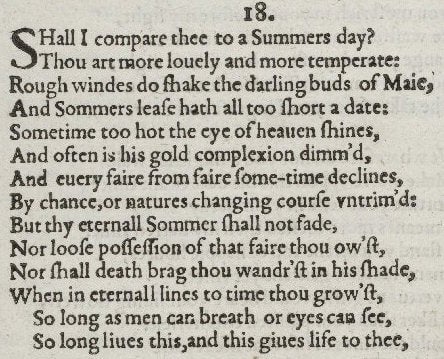Scientists identify precisely why the best poems are pleasing
Shall I compare thee to a summer’s day? According to scientists studying poetry, it can’t hurt.



Shall I compare thee to a summer’s day? According to scientists studying poetry, it can’t hurt.
A New York University study published in the journal Psychology of Aesthetics, Creativity, and the Arts (paywall) on Nov. 30, sought the secret to effective poetry. Psychologists asked 400 American adults to read either haiku or sonnets and respond to them in an extensive survey. They found that form mattered less than vividness when it came to enjoyment.
The study concluded that all poems that pleased readers were vivid in their sensory imagery, evoking a clear picture, smell, sound, or taste. Meanwhile, no poem that ranked low in vividness was deemed pleasing. Evoking readers’ emotions in particular relies on vivid sensory imagery, researchers concluded, making vividness more important to a timeless poem than form, rhyme, meter, and subject. Or to put it in verse, if you prefer:
Shall I compare verse to a summer’s day?
It will be most lovely and effective:
Vividness does shake drowsed spirits awake,
And poems work best when rousing senses:
Scientists tested haiku and sonnets,
Seeking the key ingredient to verse;
Poems evoked the most when picturesque,
Fine song makes images, a world of words:
Verse that’s eternal and time shall not fade,
That gains possession of all tomorrows;
Betrays a careful eye and lucid gaze,
Eternal lines that survive all sorrows:
So long as people breathe, and eyes can see,
Sensation’s the language of poetry.